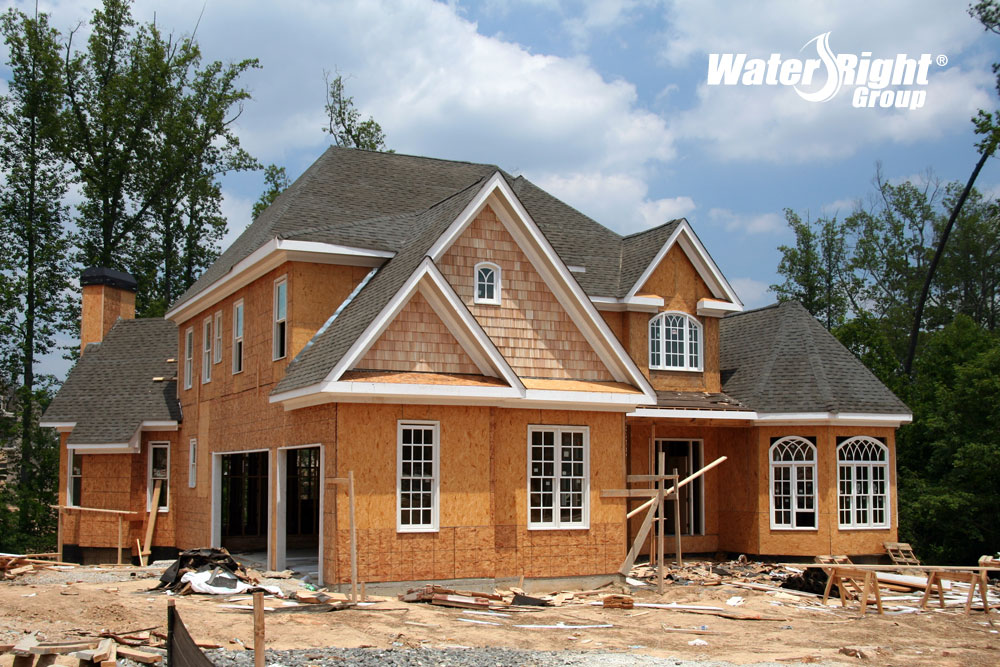
What to Consider for Water Quality When Building Your New Home
Building a new house is exciting. You have the opportunity to customize the property to suit your family’s needs. However, creating your perfect home is more than planning the layout and selecting design elements. You have to make critical infrastructure decisions, as well.
The questions that come up around the inner workings of your new home often have complex, technical answers, and there is a lot of pressure to choose the right options. Fortunately, water quality considerations don’t have to add to your stress level.
These are a few of the most important things to consider when it comes to water quality, along with quick tips for making smart decisions.
Will your new home have a private well or municipal water?
In some areas, there is flexibility around water supply, and you can choose to connect your new home to the municipal water service or install a private well. However, it is more likely that this decision will be made for you based on the property’s location and whether municipal water services are available. There are pros and cons to each, and how you manage the quality of your water is strongly influenced by where it comes from.
These are the primary water concerns for each option:
Private Well Water
The biggest water quality issue you will face with private well water is the possibility of contamination. It is important to select and install appropriate cleaning and filtration systems to ensure viruses and bacteria don’t make it into your home. Some users also struggle with water that appears cloudy. This is usually caused by dissolved solids in your well. For example, extreme weather conditions can cause your water to become clouded by soil particles.
Municipal Water
When your home is connected to the municipal water supply, your water is chemically treated to kill viruses and bacteria. However, this causes an entirely different problem. Such water can be unpleasant for drinking, cooking, and bathing, due to the smell and taste of chlorine.
Both types of water can contain dissolved minerals, so issues with scaling, staining, taste, and odor can impact you regardless of your water’s source.
What’s the water quality in your area?
If your home will be connected to municipal water, the next step is to research the water quality in your area. For example, is the water hard or soft? Are there any known issues with contaminants? Do you have concerns about specific contaminants?
Your municipality publishes a Consumer Confidence Report that discusses the quality of your water, so you can begin your research with a copy of this document. However, you may wish to consider hiring an independent water treatment expert to test the water in your new home — just to be sure.
How do you keep your well water safe?

If your new home will have a private well, you are solely responsible for the safety and quality of your home’s water supply. You can get the best possible start by planning for your well before you build.
The location of your well influences the quantity and quality of water to your home, so scout out the best possible well site before you finalize construction plans. Next, determine how you will manage your water quality.
For example, a home filtration solution that includes Water-Right’s exclusive Crystal Right™ media is a popular choice for eliminating unwanted tastes and odors. This unique technology will filter iron and manganese, reduce hardness, and raise the pH of water in a single unit. It is available in their Sanitizer Plus Series unit and on Evolve and WaterCare product lines as well. Additionally, many homeowners install a reverse osmosis system that offers additional filtration to address any remaining taste, color, and odor problems. If you have a bacterial concern, adding a UV treatment system will deactivate and protect your drinking water from any organisms.
What options are available to solve common water quality problems?
Once you have identified specific issues with the quality of water in your home, you can take steps to install appropriate solutions. Some of the most common issues — and their solutions — include the following:
- Hard Water — This issue is caused by dissolved minerals in your water, for example calcium and magnesium. If you have hard water, a water softener is the best solution. These appliances filter the minerals out of your water so that your washing machine cleans your clothes more effectively, your showers are more satisfying, and your pipes stay free of mineral buildup.
- Iron Stains — Cleaning iron stains from your bathroom fixtures is difficult and time-consuming. High levels of iron will affect the flavor of your water as well, giving it a very metallic taste. Fortunately, this problem is easily fixed with a high-quality water filtration system. For example, the Impression Series® Air Filters and Impression Plus Series® Air Filters from Water-Right Will oxidize the iron, changing it into a particle so that it can easily be removed by the filtration media inside.
- Acidic Water — Depending on the area you are building, the water supply may not have a neutral pH balance. Water traveling through your home with a low pH (acidic), will cause corrosion to your home’s plumbing and fixtures. The installation of an acid neutralizer unit will protect your investment and raise the water to a less corrosive state.
- Bacteria — If your well is not properly sealed, your water source can become exposed to bacteria. While not harmful to your health, it will cause foul tastes and odor in your water using appliances and laundry. It is also possible that consuming these bacteria can cause digestive issues, such as diarrhea. The solution — the well must be chlorinated and the crack sealed. Our friends at Clean Water Testing have provided instructions on how to chlorinate your well.
Your municipal water quality report can leave you with unanswered questions, and the quality of private well water can change unexpectedly. It is recommended that homes on well water should have their water tested at least once per year to monitor these changes. Water treatment experts will give you details on the composition of your water, so you can choose the appropriate filtration and treatment options.

